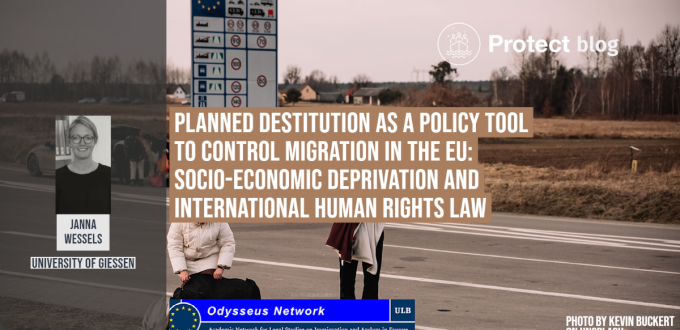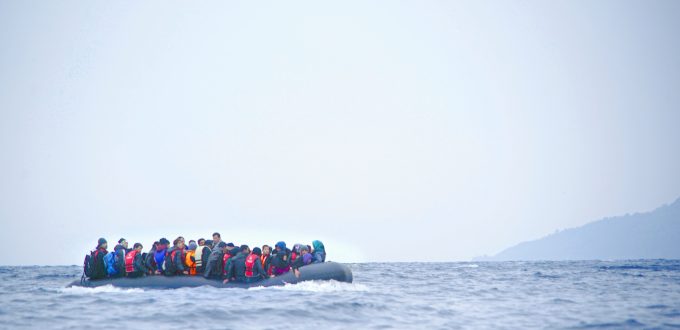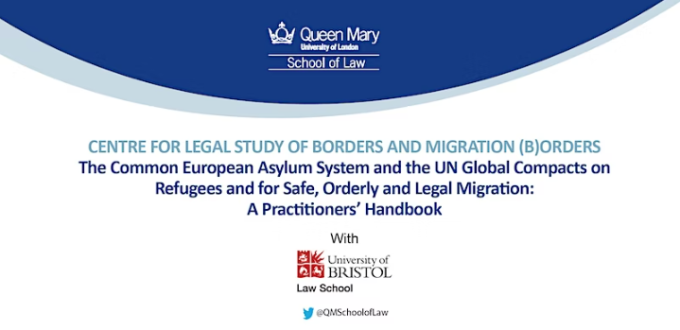PROTECT is by far the most adventurous of the projects that I have led. PROTECT’s research activities started on 1 February 2020 and ended on 30 April 2023. We are now in the process of preparing our final administrative and financial reports for the European Commission. PROTECT’s kick-off conference was on 9-10 March 2020 in […]
Planned destitution as a policy tool to control migration in the EU: Socio-economic deprivation and ...
Policies of ‘planned destitution’ in the EU The increased use of social and economic exclusion as a policy tool with a view to managing certain groups of ‘undesirable’ migrants is one of the major trends in European asylum and migration policy. While this already occurs under the current legislative framework, the most recent reform proposals tabled by […]
Is it worth it? Addressing the calls for more data on the use of South Africa’s public healthcare sy
This strategy of manipulating and deliberately misrepresenting data or relying on anecdotes to support a particular political agenda is not new, but it is dangerous and damaging for everyone in South Africa. The scapegoating of SADC nationals by some government officials and anti-immigrant activist groups for the failure of the state to tackle widespread service […]
Why do recognition rates for asylum seekers differ so dramatically across the EU?
Every year, more than a million asylum applications are lodged worldwide. In 2021, a total of 1.4 million claims were made, 648 thousand of which were in the European Union, but only a fraction of these will eventually lead to protection. In 2021, 22% of first instance decisions in the EU granted refugee status; another 17% granted other protection statuses. If […]
A Novel Approach to EU Asylum Law
This Practitioners’ Handbook on the Common European Asylum System (CEAS) and EU and Member States’ Commitments under the UN Global Compact on Refugees and the UN Global Compact for Safe, Orderly and Regular Migration identifies CEAS provisions which fulfil the Compacts’ requirements as well as those that diverge therefrom. Through this exercise, the Handbook highlights […]
Never let anyone tell you that you can’t make a difference: UK civil society organisations challenge
The news has been welcomed by human rights groups and organisations as a victory both for people seeking sanctuary and democratic institutions in general. If the news may offer a momentary sense of relief, this only represents half of the story. The Nationality and Border Bill of Priti Patel The episode stands against the background […]
COMPARING THE DISCOURSE REFUGEES AND MIGRANTS IN EUROPE ACROSS TRADITIONAL AND SOCIAL MEDIA
We analyzed ~16 million social media posts (Twitter, Youtube and Reddit) and ~2 million news articles across nine different languages (English, Spanish, German, French, Italian, Dutch, Swedish, Danish and Polish). The posts were selected using similar query criteria. We dissected the discourse along two dimensions. First, we identified specific themes present across the different language […]
Can Russians refusing to perform military service claim asylum under EU law?
As Professor Elspeth Guild and I discuss in a recently published PROTECT Policy Brief, in both international refugee law and in EU law, people fleeing punishment or persecution for seeking to avoid conscription to fight in a conflict in which war crimes are taking place are entitled to seek and enjoy protection as a refugee. […]
The Common European Asylum System and the UN Global Compact for Safe, Orderly and Regular Migration
When: Tuesday, 27th September 2022, 17:00 – 19.00 hrs Where: Room 3.1, Lincoln’s Inn Fields, Centre for Commercial Law Studies, Queen Mary University of London or online (register here) The (B)OrderS: Centre for the Legal Study of Borders and Migration at Queen Mary University of London (QMUL) and the Centre for International Law at the University of Bristol invite you to […]
Beyond Ukraine: Will the EU Expand Asylum Access and Rights?
The catastrophic humanitarian toll of the Russo-Ukrainian conflict has been met by much-heightened attention and openness by Europe so far, with the Union taking the unprecedented step of activating the Temporary Protection Directive (European Commission 2022) and even previously reluctant countries such as the United Kingdom and Poland establishing substantial incentives for solidarity with Ukrainian […]









